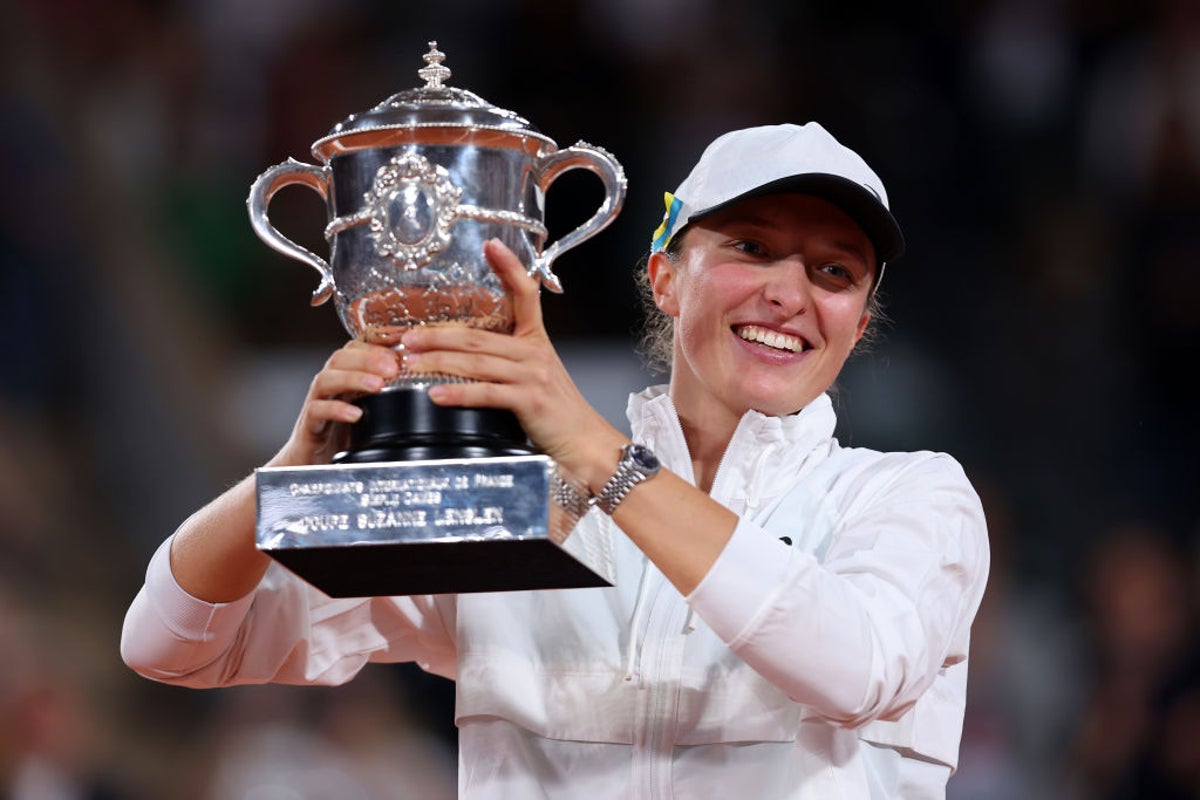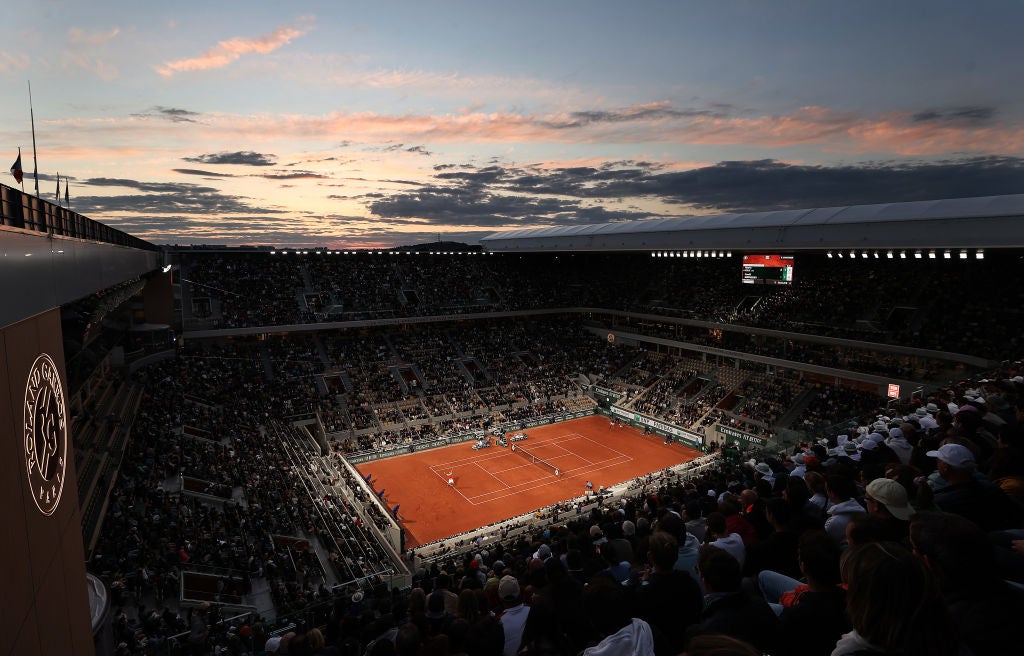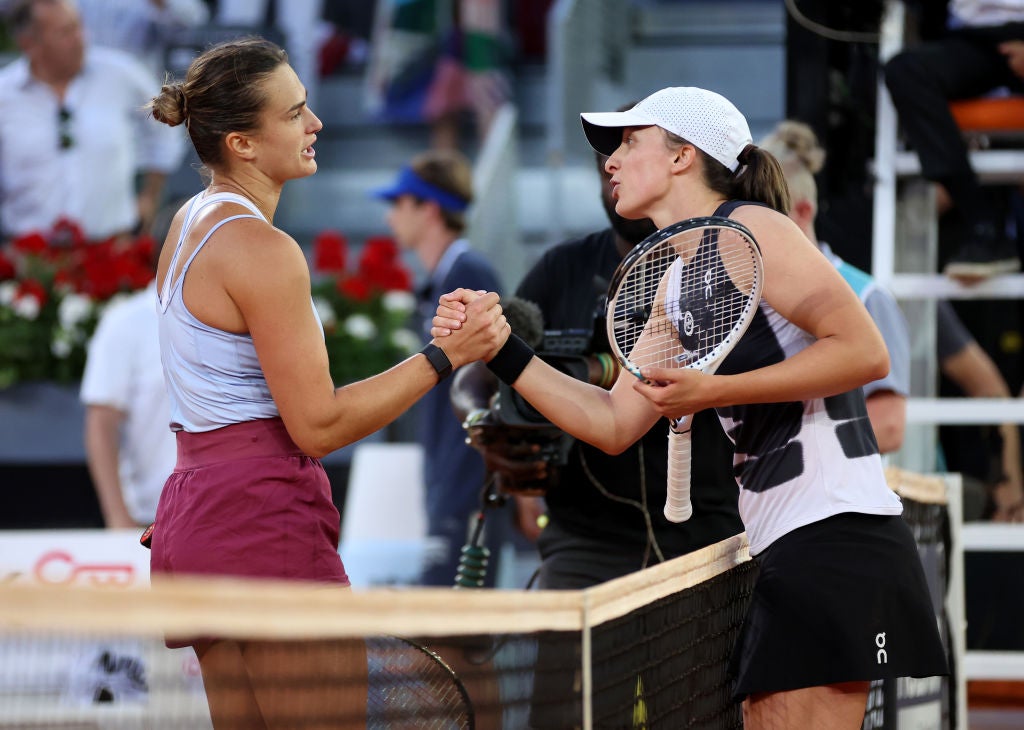
Tennis has a new big three. Iga Swiatek, Aryna Sabalenka and Elena Rybakina arrive at the French Open as the winners of the previous three grand slams in the women’s singles, and with a clear gap having opened up over the rest of the field. In the past six months, they have met in the latter stages of the biggest tournaments, with the variety of their individual match-ups delivering contests of the highest calibre, resetting the power rankings. A year on from Swiatek storming to a second French Open title and looking a level above the rest, it no longer appears to be a conversation of one.
The sport needed this. With so much change coming at the top of the game over the past two years, women’s tennis had reached the point where it needed a rivalry. It now has three in one, its own triumvirate, which will be enhanced should Swiatek, Sabalenka and Rybakina continue to compete against each other for the grand slams, beginning with Roland Garros over the next fortnight. But the reason why this year’s French Open is important is not to do with rivalries. The tournament will be under a scrutinous eye as it looks to respond to controversy, stemming from last year’s French Open to the events of recent weeks.
In what should be a prosperous time for women’s tennis, the game is instead facing serious questions around equality following major tournaments in Madrid and Rome that created unwanted headlines. At the Italian Open last weekend, the women’s singles final between Rybakina and Anhelina Kalinina was rescheduled to 11pm on Saturday night following a rain-affected day in the men’s semi-finals. Rennae Stubbs, the former Australian player, branded the decision not to move the final to Sunday, and play it on the same day as the men’s, as an “abomination” – while the French player Alize Cornet said the sight of empty stands for one of the biggest WTA finals of the year was “sad” and “disappointing”. Kalinina, perhaps impacted by the delayed start time, had to retire injured shortly after the opening set.
Tennis, in general, has a scheduling problem – the WTA insisted starting the match at such a late time was the “right thing to do” due to the weather - but the recency of the numerous scandals to hit the Madrid Open last month allowed for dots to be connected after Rome. The Spanish tournament issued an apology after effectively silencing the women’s doubles finalists during their trophy presentation, denying the players the chance to address the crowd after Victoria Azarenka and Beatriz Haddad Maia defeated Jessica Pegula and Coco Gauff. “What century were they living in?” Pegula asked afterwards, while the tournament’s decision to employ model ball girls and dress them in revealing outfits also appeared to be one from another era. “Madrid and Rome have been fiascos for women’s tennis,” said Pam Shriver, the former world number three.
And so enter the French Open, the second grand slam of the year, under pressure to respond to concerns around equality in the sport, but with its own point to prove as well. Roland Garros and its famous red dirt was the scene of its own controversy last year surrounding the scheduling of its night sessions – the final match to be played on the main Court Philippe-Chatrier and a single, showpiece contest, selection for which essentially announces it as the highlight of the day.
Yet at last year’s French Open, just one of the 10 primetime night sessions featured women – a second-round match between France’s Cornet and former French Open champion Jelena Ostapenko. Tournament director Amelie Mauresmo initially explained the imbalance of the scheduling was because men’s matches had more “appeal” than women’s matches, comments that were criticised by the eventual champion Swiatek. Mauresmo later apologised and said her answer had been taken out of context.
Certainly, at Roland Garros last year, it would be hard to deny that the two players with the most “appeal” were Rafael Nadal and Novak Djokovic, but between them they featured in just three of the night sessions – including their quarter-final that finished after 1am. That wasn’t the problem: rather, the fact that Stefanos Tsitsipas, Holger Rune, Daniil Medvedev and Casper Ruud – top players all, but hardly major stars – all took precedence at various stages over the best players in the women’s game. It suggested that highlighting the men’s tournament, to all intents and purposes, was the default choice.

It means there will be an increased focus on the French Open this year, and not just because of what has already happened at Madrid and Rome. While the French Open, the three other grand slams and other major tournaments offer equal prize money – although, until 2025, not Rome – it is often an illusion that it creates an equal sport. Scheduling matters, and last week’s Italian Open final and last year’s French Open night sessions lent weight to the view held by many that women’s tennis remains second-class. The backlash led by Pegula and Gauff after being denied the chance to speak in Madrid and the criticism that followed the Rome final suggests players are fed up with it, too, and are ready to speak out.
The French Open will surely be aware of the temperature in the room as it draws up its schedule for the first few days of the tournament. If there was an excuse from Roland Garros organisers last year that the women’s tournament just didn’t have the excitement or the pull of the men’s – and there wasn’t – the emergence of Sabalenka and Rybakina to join Swiatek in the big three ensures that those claims cannot be repeated.

Swiatek is the target and the stakes have been increased by both Sabalenka and Rybakina having beaten the world No 1 on clay this season – Sabalenka to win the Madrid Open in a major upset, and then Rybakina on her way to winning the Italian Open, even though the Pole retired with a thigh injury at the start of the third set. How Swiatek responds as the 21-year-old targets a hat-trick of French Open titles will be fascinating, and will be watched as intently as the daily announcement of the order of play in Paris.







